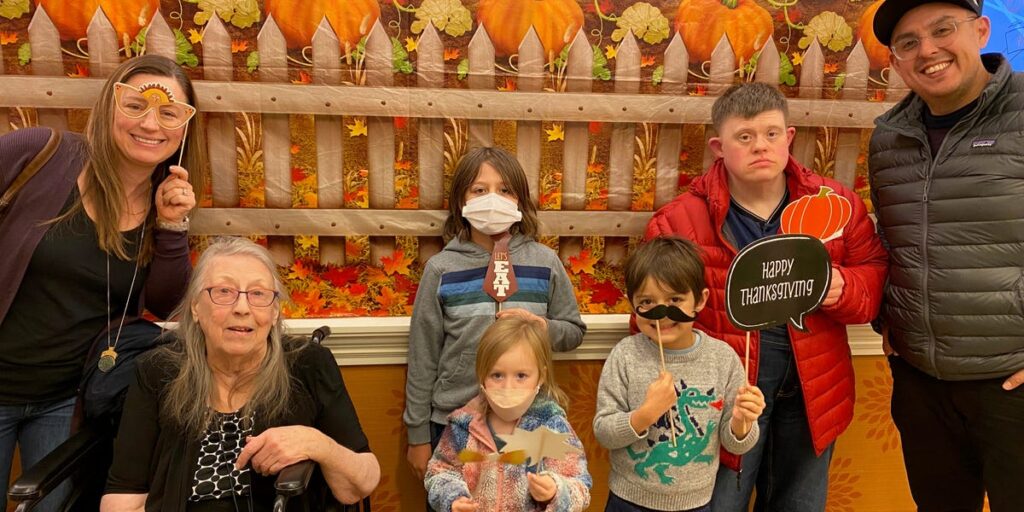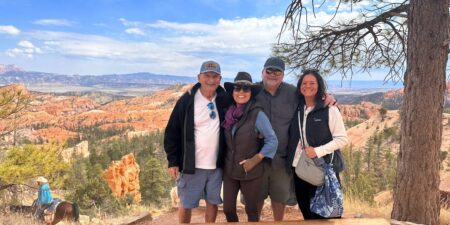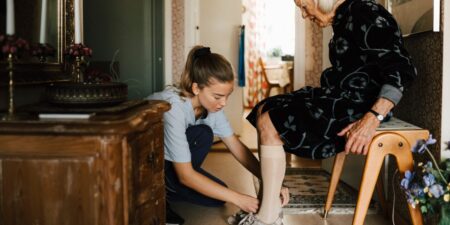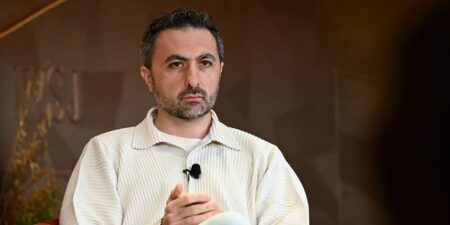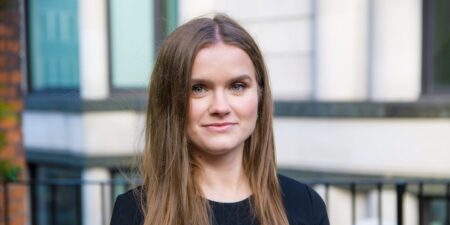When my first two children were 2 and 6, my mom ended up in the hospital. Little did I know, she would never return to living independently. Suddenly I was scrambling to figure out where she would live, the status of her finances, and researching what to expect given a new dementia diagnosis. Just a few years later, my father’s health began to decline and there were signs of dementia — all while I had a third child on the way. With both of my parents losing their ability to fulfill guardianship duties for my brother with Down syndrome, his care soon became my responsibility as well. I was part of the Sandwich Generation — with a side of fries.
No one prepared me for this, but maybe they should have. After all, my mother was 38 when I was born, and I had my three children when I was between the ages of 34 and 40. No other siblings or extended family lived nearby. As people have children later and our parents live longer, I’m not alone in this situation: almost a quarter (23%) of American adults are part of the sandwich generation, according to Mental Health America. Everyone should be ready before a care crisis hits their family — I wish I had been.
Being prepared makes a big difference
There are many things I wish I would have known and prepared for before being surprised and overwhelmed by the responsibility of caring for aging parents and a disabled sibling while already caring for my own children.
I quickly realized that I couldn’t avoid having difficult conversations with my parents and my husband about eldercare, medical wishes, wills, and advance directives. It’s not fun to talk about worst case scenarios, or planning for death and disability, but it’s infinitely easier to manage these events if you have a plan in place beforehand.
I started thinking ahead
It quickly became crucial for me to develop an extended care network for support. I got in direct contact with doctors and social workers and hired an eldercare specialist to take on tasks for my mom that I couldn’t manage alone. The specialist helped take my mom to appointments when I was unavailable, made care suggestions and connected me to trusted resources, and helped slowly purge some of my mother’s belongings before she moved into a nursing home.
Getting power of attorney for my mother and getting named on her accounts was critical to being able to take care of all of the financial and health responsibilities that emerged.
Similarly, becoming my brother’s co-guardian before it was completely necessary so that I could have time to learn the responsibilities of the role made the transition much easier. I hired a lawyer to help file guardianship paperwork and streamlined my communication with his care team.
Having a flexible work schedule as a consultant also allowed me to handle some care tasks during business hours. It was still exhausting, but things were manageable.
I made sure to make time for my kids
My husband took on more of the childcare responsibilities in our family while I was in the thick of sorting out financial and health issues for my mom and brother, but I always made time for them.
It was a juggle, but I didn’t let my new caregiving responsibilities keep me from taking family vacations with my kids or attending their school performances. Sometimes they simply came along with me to visit their grandma or uncle while I took the time to help with financial or health tasks. Spending time with their disabled relatives has had the positive impact of building empathy and recognizing the importance of caring for others.
I had to take care of myself, too
Once everyone else was settled, I started to focus on myself. I had to learn to maintain my own boundaries and ditch my people-pleasing tendencies. Even though I was doing so much to care for everyone around me, I felt constant guilt that it wasn’t enough, and pressure to do everything others needed or wanted at any given time, often at my own expense.
I had to come to terms with the fact that sacrificing my own needs was not sustainable or productive, and that saying no to some requests and asking for help would be the only way I could care for others and maintain my own health and wellbeing.
We’ve been taught to save for a healthy retirement, but planning for the possibility of extra care and disability in our elder years has been a taboo topic for too long. I would encourage other Gen Xers and Millennials to consider taking a more proactive approach to figuring out childcare, eldercare, and finances to avoid burnout and care crises in their own lives. Doing so will certainly make things easier down the line.
Read the full article here







